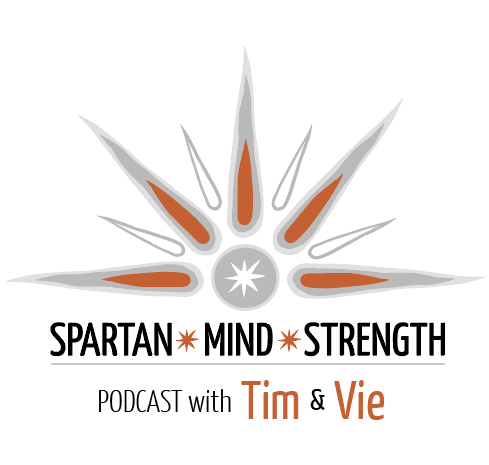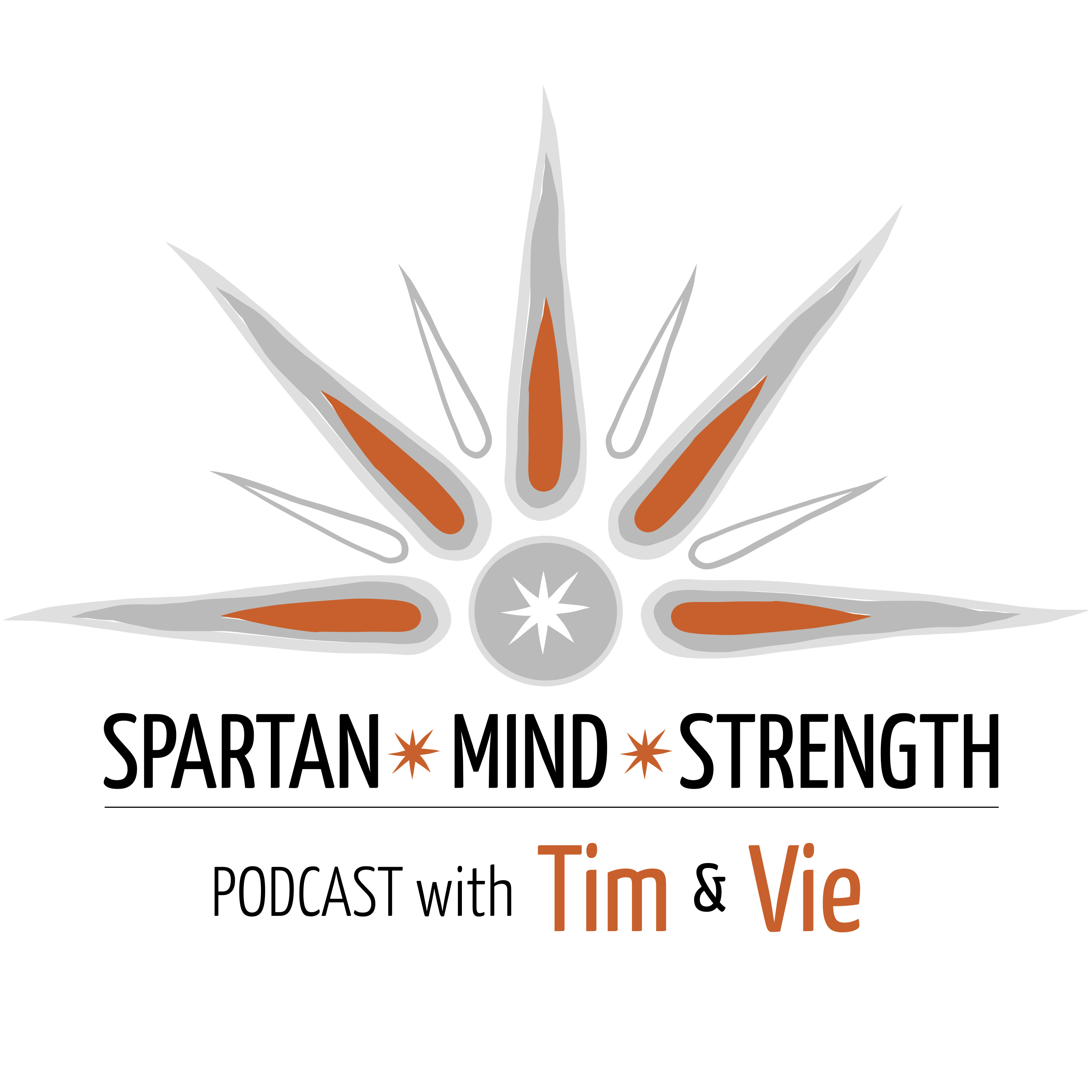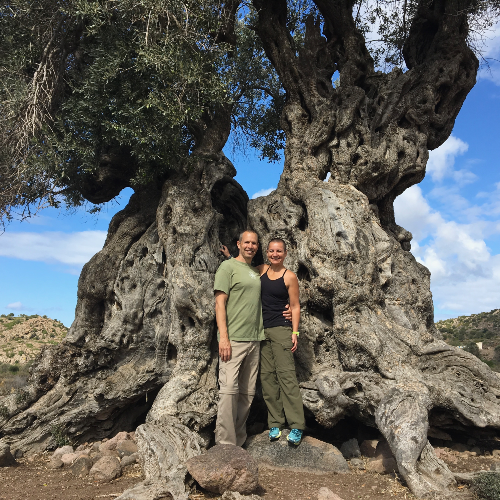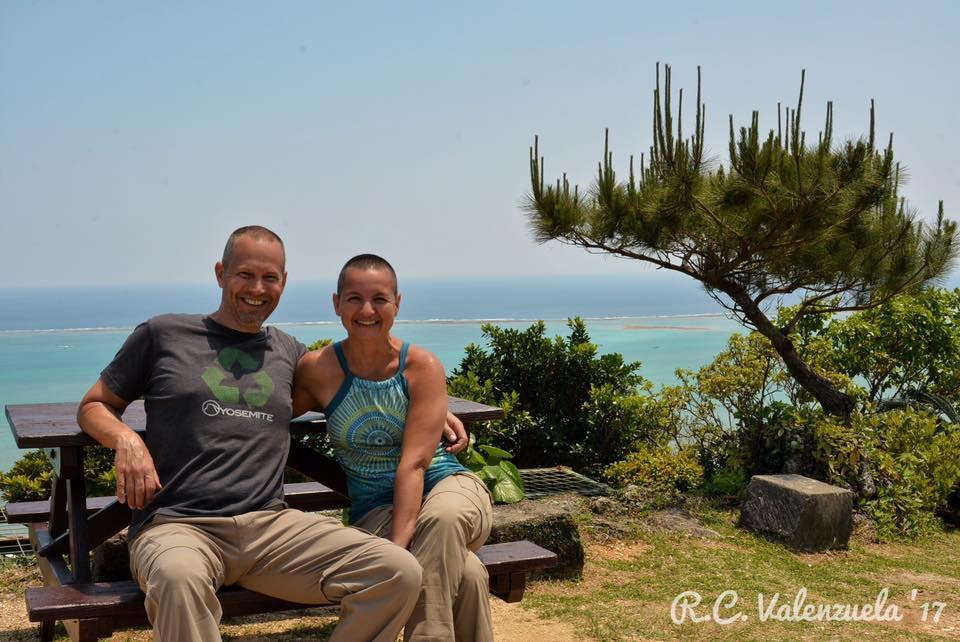Episode 80
Ayurveda and Prepping - Part 4
Resources
This series is brought to you by the Fascia Fanatic, Cherica Voyles, LMT offering massage and bodywork in Northeast Georgia. She can be found on Instagram at @chericavoyleslmt and on her website at www.chericavoyleslmt.com
Did you subscribe to the podcast?
Did you share this episode with all your friends?
Private Online 200-hr Yoga and Ayurveda Teacher Training
Private Online 300-hr Ayurveda and Yoga Teacher Training
Both trainings include three months of private mentorship after you complete the training in order to help you successfully implement everything you have learned in your professional and / or personal yogic / ayurvedic life
Email us your feedback at: training@asktimandvie.com
Instagram account: yogaenergyschool
Instagram account: ayurvedaoutlaws
Our YouTube Channel: https://youtube.com/c/asktimandvie
Yoga Energy's Training Library can be found at: https://squareup.com/store/training-courses
Our favorite company for meat is US Wellness Meats
You can help support our Podcast by giving as little as $1 per episode, our PayPal account is here: https://www.paypal.com/cgi-bin/webscr?cmd=_s-xclick&hosted_button_id=7FDYKCGSKL3NL&source=url
May we all be well, adapt and thrive! - Tim and Vie
Episode Transcript
Tim: Hello, this is Tim
Vie: and this is Vie and we welcome you to another episode of the Spartan mind strength podcast.
Tim: And today is number
Vie: Four of the Ayurvedic prepper series. Stay tuned. We’ll be right back.
Tim: And we’re back. And, but before we start, did you subscribe, did you share, did you like, did you comment or not? Anyway we’re getting ready to start the ayurvedic prepper, but who is it brought by?
Vie: This is brought to you by the fascia fanatic Cherica Voyles LMT offering massage and body work in Northeast Georgia.
Tim: And she’s also doing personal training with yoga and more of a functional training style.
Vie: Exactly. And she’s just starting that and all her contact information is in the show notes, which you should always check out the show notes because we put a lot of useful links there. And we don’t always say when we do it.
Tim: Yep. So today we’re going to be talking about ayurvedic prepping again, and, just to go over what ayurvedic prepping is, ayurvedic prepping is not the things that you see on like YouTube and stuff, where they say by 80,000 bullets, have chickens running in your apartment.
Vie: Have food for a year.
Tim: There’s some preppers out there that are very intense in their thoughts and they may be right, they may not be. But we’re going into more of a look at what an ayurvedic prepper would be. And today we’re going to really get into what an ayurvedic prepper is. And they’re someone that
Vie: Who’s learning, who has prepared themselves to adapt to any situation. An ayurvedic prepper is always preparing to adapt. And what that means is that he’s ready when the dynamic balance is starting to go a little bit off, is ready to ride those waves pretty much and create a balance again.
Tim: So, so we talked about the first one was on, your home, trying to keep it, keep your home in good shape
Vie: And what not to do and talking about the path of least harm.
Tim: Yep. And the second one was more on food. And the third one was actually on a, like, electricity.
Vie: Yeah. Utilities, electricity mainly. Yeah.
Tim: And this all comes from basically the rule of three and the rule. There’s a lot of different rules of three. In survival, they basically touch, this is sort of where we are taking it, but we’re taking it more of an ayurvedic look at the rule of three.
Tim: So in prepping, or in survival, they talk about the rule of three is, three minutes without air, three hours without a cover and shelter, three days without water, three weeks without food and three months without hope. Now we’re going to shift that to be more of an ayurvedic look.
Vie: Yeah.
Tim: And the first one I want to talk about is the mitochondria, which is more important than all of those, because mitochondria dies has to be replenished every three seconds.
Vie: The ATP, the mitochondria in our cells is what produces the ATP, the infamous adenosine triphosphate. Anyone who has been in a gym, long enough, recognizes the term ATP, right?
Tim: Yes because of creatine, it’s huge for ATP.
Vie: Exactly. Our body, we can’t survive even three seconds without ATP that is produced by our mitochondria. And when we say ATP, ATP is truly the energy of life, our body needs ATP to function.
Tim: And where we’re taking ATP is, it actually learned to adapt.
Vie: Yeah, exactly.
Tim: So that’s why ATP is almost like the mother of ayurveda.
Vie: Exactly, exactly. So, when someone says, I don’t have, I don’t have energy to deal with this right now, I am too overwhelmed, I’m too exhausted, what they are truly saying is I don’t have enough ATP in me. The mitochondria in my cells don’t produce enough ATP. So, the mitochondria are little bacteria or organelles. And they are in almost all of our cells. And why the mitochondria are so important, and were actually discovered over a hundred years ago, in biology, why they are so important is because they are the oldest, the oldest part of our body. And they are those smart ass guys who learned to use oxygen for their own benefit. So in a place very, very, very far away when everything on earth was dying, due to a really harmful poison, which is now called oxygen, the mitochondria learned to harness the power of the oxygen and turn it into energy. And that’s how they survived.
Tim: And that’s how they adapted.
Vie: They adapted And not only they survived, they thrived. I mean, think about it. They became who we are today.
Tim: Because without them, and again, without ATP, we are dead.
Vie: Exactly. Exactly. So, the idea is that just like our mitochondria, actually we call it our Shakti, our energy, our mother energy, just like the mitochondria learned to adapt. And they, they used oxygen. I mean, think about it. Oxygen was destroying everything on earth. And the mitochondria said, huh, let’s see what we can do with it. And they adapted and they produced ATP and all that stuff.
Vie: So just like they did that, we should learn from the history of existence to adapt.
Tim: So the first thing is you’ve got to make sure that you feed your ATP and we’ll be talking about how to feed that throughout this podcast. And the next thing I want to go into is they talk about now three minutes without oxygen.
Vie: Yeah. And some people can get longer than three minutes. Some people can get shorter than three minutes. And the average though is without oxygen for three minutes, you’re dead.
Vie: Yeah. That’s the average.
Tim: And this also can be, we can adapt to that.
Vie: Exactly. That’s the idea. So when they, when we say on average, we can survive three minutes without oxygen, some people can go longer, some people can go shorter. Someone is for some reason panicking and they die.
Tim: Because they suck up too much air.
Vie: Because they suck up too much air and they die within a minute. So the idea is that we need, we need oxygen to create ATP, right? That’s the, that’s the whole idea is that we need oxygen to create ATP, but how much oxygen we need and how much ATP we can produce with a certain amount of oxygen, it all can be manipulated.
Tim: Because you can manipulate, well, you can manipulate the oxygen, how much you need through breath-work, practicing breath-work.
Vie: Exactly. And so to give again, an example, they say that an average adult takes about 15 to 20 breaths a minute. And it could also be longer than that. It could be 20 to 25 breaths a minute an average adult. Right. But, if you practice breath-work, and if you become a more conscious breather, a better breather, you will all only take about five to seven breaths a minute.
Tim: So even if you can drop it down several breaths, from 19 to
Vie: From 25 to 20 from 20 to 17, from 17 to 14, and you keep going, then you don’t need as much oxygen.
Tim: And I know through scuba diving, that we always dive and we’re the first ones in. And we’re also the last ones out. And a lot of times we come out with a lot of air left in the tank, because we’ve learned to control our breath.
Vie: Exactly. That’s the idea, that’s the idea. So those three minutes without oxygen on average, can be manipulated.
Tim: And they also can be manipulated through meditation. Focus.
Vie: Exactly. Because the idea is that you can make your breath way more effective. And you can use focus exercises to learn to control your breath. And, you can use just simple breathwork exercises to control your breath.
11:37 Tim: Which actually the simple breath-works work much better than the advanced breath-works.
Vie: Exactly. Exactly. And you can use your breath to control your mind. You can use your mind to control your breath. So you can do mental exercises to increase your focus, and that will reflect on your breath. Or you can do breathing exercises to work on your breath and that will reflect on your mind. Because it has been shown over and over and over and over that our breath and our mind are interconnected.
Tim: Well, I’m going to take a quick breath break and we’ll be back in a minute.
Vie: So I can take a breath.
Tim: And I can breathe. So that is breath work. So if you learn to breathe better
Vie: Yes.
Tim: And also through the nose is very important, and you can then manipulate that three minutes.
Vie: Yes, absolutely.
Tim: Through focus and breath work.
Tim: And so the next thing is three hours without some form of shelter from harsh environment. And that also can be manipulated. Because what is harsh environment? It all depends on the person and how they have grown up, or adapted to the weather.
Vie: Exactly. What, what is harsh environment say for someone who cannot tolerate heat of any sort? 75 degrees outside may be harsh.
Tim: In Florida right now, it could be considered harsh being out for some people being outside for three hours.
Vie Exactly, heat and humidity.
Tim: But for other people, they can go out, actually we used to teach paddleboarding for six, seven, eight, nine, 12 hours a day in the middle of the summer in Florida.
Vie: Exactly.
Tim: So you can manipulate again, what is harsh environment due to what you continue to train in.
Vie: Exactly. And same with cold. If you, if you prepare yourself for cold weather, then cold is all relative. That’s the whole cold shower thing that we say over and over in, you know, in the morning. Actually that, I saw the results of that dramatically when we were scuba diving in Okinawa, right, and we had no wetsuit.
Tim: We had to adapt to it.
Vie: Exactly.
Tim: And that’s also why the military trains in multiple areas, you know, they train in the mountains, they train in the cold, they train in the swamps, they train to be able to adapt to the harsh environment so that if they have to go into harsh environment, it’s easier for them.
Vie: Exactly. And that’s the whole, it’s environmental conditioning, right, the fancy word for it is environmental conditioning. Now that doesn’t mean that you have to do all those things on a regular basis. And you don’t have, you know, there is only so much you can condition yourself in, say high-altitude, or cold weather or incline environment, or say you live in Florida, right. You can’t, you can only do certain things.
Vie: But just even a little bit, just preparing yourself enough for a change, it’s going to make less of a shock to your body when it actually has to do it.
16:00 Tim: Because, let’s say Florida, three days without air conditioning, because of a hurricane hitting, you lost power, that’s going to, that could be considered harsh environment and it can throw off people. It throws off their mental aspect, and then they can’t focus as well, and they start getting angry. Anger then makes bad mistakes and that can then add to more issues.
Vie: Exactly.
Tim: So by training your body, just by turning the air conditioner off one day, just one day so that you can see that you can, you can breathe, you can live, you can sleep, you can take a shower all without an air conditioner.
Tim: And then there’s ways that you can do it in the cold is turning off the heat or turning the heat down lower, and then see that you can survive for the one day.
Tim: I know, and what does the stoicism, they talk about sleeping on the floor for one day, sleeping with just a towel, instead of a blanket. And, Sparta used to give their kids only a red cloak and they had to survive with that. So it creates a person that can see that it’s okay not to have things for a couple of days. It gives you the ability to say, this, I will live through. So by continuing to challenge yourself just in little steps, you’ll be able to then, harsh environment is a lot different.
Vie: Exactly. It’s avoid, avoid, always looking for something external to make your, to make yourself comfortable. It’s like, quit seeking comfort 24 seven.
Tim: But that’s what us as humans are.
Vie: Exactly.
Tim: We want that comfort. So you actually have to go against that feeling of wanting to create comfort because comfort is good.
Vie: Yeah. Actually, that’s why we have everything we have, right. We were seeking comfort, but
Tim: On occasion you have to turn that comfort off so you don’t become controlled by the comfort.
Vie: Complaisant.
Tim: You don’t become a slave to the comfort.
18:20 Vie: It’s finding that dynamic balance, it all goes back to ayurveda, finding that dynamic balance between comfort and discomfort. It’s finding that fine line between the two. And what happens is because we have so much comfort already in our life, in order to train ourselves for that dynamic balance, it seems like we need to create a lot more discomfort. Does that make sense? Because it makes sense to me. We are so accustomed to a lot, to all this comfort that we have to look for what seems as intense discomfort in order to train ourselves for that dynamic balance.
Tim: And just going back a hundred years you will see that what they lived in is completely different to where we’re living today.
Vie: Exactly, exactly. So, so like turning the air conditioning off, you know, for a few hours, seems like it would kill us because we are so used to the air conditioning.
Tim: But in the old days they built the houses to be without air conditioning. So they, they learned how to work the wind and that. So they, those are things that when you turn the air off, you can now start saying, well, how can I make it cooler?
Vie: Exactly.
Tim: How can I make it warmer If you have to turn, if there’s no heat? How can I do these things so that I can survive and thrive when everything is going weird.
Vie: Exactly. And it’s gonna, the right amount of discomfort is, just like you said, is gonna help kickstart that ingenuity in us to a higher degree. Because we’ll start looking and finding actually, ways to make ourselves less uncomfortable through a lot simpler things. And the most important thing is by having trained in a little bit more controlled environment before the real need kicks in, then we’ll maintain our focus. And that’s, that’s the whole thing, we won’t be as stressed.
Tim: And so the next though is water. They say three days without water. Now that also can be manipulated. Some people won’t be able to make it one day without water. Not that they’ll die because of it, but they’ll, their mind will not let them think that they can survive. And other people can go longer without water because they’ve trained their body to be able to live longer without having to put the water in. And that goes into the concept that more people have died from too much water in today’s world than from not enough water.
Vie: Absolutely. And it all has to do with that hydration, right. How hydrated are we already and how much water do we actually need. A lot, most of the time we don’t need as much water as we think we need. It’s that false thirst that we have, the false sense of thirst because we are depleted of other things, we are depleted of electrolytes, we are depleted of good fat, we are depleted of that internal hydration / internal oleation.
Tim: So with that though, instead of, when you’re looking for water, salt is very important.
Vie: Salt is very important. Potassium.
Tim: You’re also looking for like the lime juice or lemon juice.
Vie: Exactly.
Tim: And also like even a little bit of honey
22:50 Vie: Honey as a carrier, as a carrier for them that helps them absorbed, helps them be absorbed in your body. So basically it’s like that infamous hot yoga’s margarita.
Tim: Yeah. And that’s something you created a long time ago when we were teaching hot yoga.
Vie: Exactly. And it’s like a cup of water, the juice from say half a lime or half a lemon, it depends. Heating lemon, cooling lime. And then quarter teaspoon of a good salt and a few drops of honey. And you mix it, room temperature, adjust to taste.
Tim: So that’s something that most people should, should be doing on a daily basis already to actually create a better
Vie: Better hydration, exactly better hydration. And the reason we need the good hydration is again, to have less stress and stay focused. Because our brain needs electrolytes.
Tim: Yep. So a lot of times they’re talking about, you can only last about three days if you’re in a harsh environment. So if you’ve controlled your harsh environment, now you can last longer without water.
Vie: Exactly. Because the more stressed you are, the more say you start, you start sweating, you start freaking out all those things, the more you’re going to be depleted of electrolytes and everything else.
Vie: And actually one example of how important electrolytes are, is people who are deficient in electrolytes and they keep drinking...





